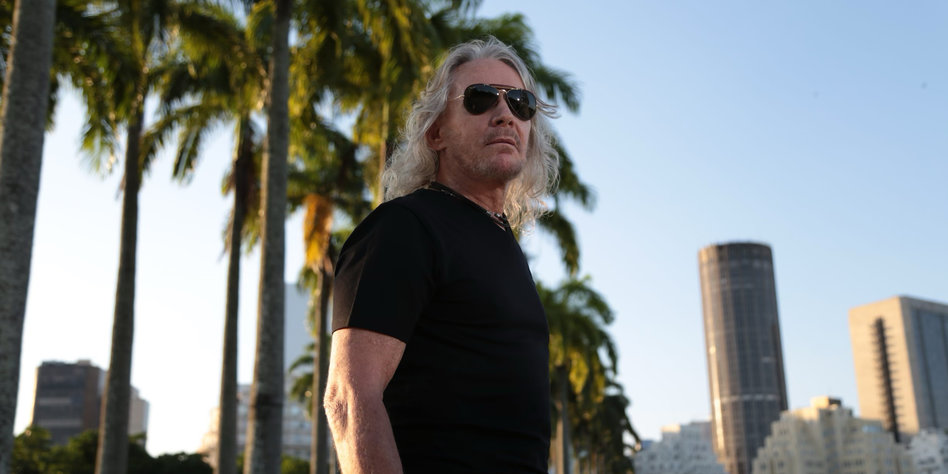Hello Marcos, where are you at the moment?
At the moment I am in my home in Rio de Janeiro, where I live.
How does the Corona crisis affect you?
Many shows around the world that I had planned were cancelled: New York in April, Japan in May, Los Angeles in June and also in Brazil. I wanted to release a new album this week called “Cinzento”. And I also have cancelled this release. So everything is delayed and we have to wait. I stay at home and do some live Instagram shows for people who are at home. So this is exactly how the crisis is affecting me.
How do you estimate the effects of the corona epidemic on the music industry?
A lot of musicians have to stay at home, so they can’t work. Everybody is having problems with the financial parts. Many clubs are closed too. And so I think it is really going to affect the music industry as much as in other sectors. So it’s difficult to say now exactly how much it will be affected, but it surely will be.
What do you do with the time you involuntarily gained?
I take my time at home to do these Live Instagram shows and the result is very, very nice because people are staying at their homes and they like it so much. They started writing and asking for songs. And that’s what I can do. Besides that, I stay with my wife at home and try to organize things at home. You know, I like to do some exercises which is necessary and just go out for the market. And that’s all. So you always have to organize everything differently, all the time. There is no other way.
What projects are you currently working on?
Well, I have my new album, which is already in the digital platform. But we have to wait with the release of the CD and vinyl version now. For “Cinzento”, which means grey, I wrote all songs and arrangements with some partners. I also had rehearsals for shows to make it live. But now I have to wait. Besides that, there is a project called “Jazz is Dead” that I have done in LA. Now I have to wait to see how and when the tours will take place. But the projects are ready.
What does music mean to you in times of crisis?
Music means a lot to me in times of crisis. I am very lucky to have the company of music. When I am sad or something, I go to the piano or guitar and play. I try to do these live performances and I write more music. I was also on my way to record a new album that should be released next year. I have already written all the songs. They are ready. So I try to write music, sing and play. And that is all I can do.
Which music, which albums are you currently listening to and can you recommend?
To tell you the truth, I listen very much to my new album and the “Jazz is Dead” project. Besides that, I always love to listen to Steely Dan, Stevie Wonder…you know, people like this or even some classic music at that moment.
How do you think it will go on for you?
It is very difficult to know what will happen with this virus. I don’t know how long it will take. And in Brazil I think the best thing we can do is just stay at home and try to do what you have to do. And if you have faith like I do, then pray and just stay and wait.
Do you have a message for your fans?
I want to tell my friends that I’m doing everything I can do at the moment. I have, as I told you, many new projects that I have done. I’m lucky, because they’re all good. I would tell my fans that we have to be very humble about everything. It’s like everyone was speeding, running, and suddenly having to brake and think. We need each other so much, all countries and all races, young and old. We are nothing if we don’t get together.
Marcos, I have also a few questions about your musical roots. What is your earliest musical memory?
My earliest musical memory was the piano my mother had in her house. I was very, very young when I started to be attracted to music. I was 4 or 5 years old. My grandmother played a lot of classical music. So I loved to listen. At the same time, my father, who was a lawyer, loved popular music. So I also listened to many records he brought home and to many different Brazilian singers and musicians. I also remember the carnival time, which was also very stimulating for me.
So I was very young when I was already studying piano and classical music. And I studied for maybe ten years. But at the same time I followed popular music, so after a certain time I gave up classical music and turned to popular music. Since then music has been my school, my constant companion.
Which artists and bands have influenced you?
From the beginning, many artists have influenced my music. But there is a rhythm in Brazil called Baião, which comes from the north of Brazil. That was the very first popular rhythm that really interested me. I would say that my very first great influences were Dorival Caymmi and Luiz Gonzaga. But later, when Bossa Nova started in 1958, Jobim really became an idol for me. At the same time I started listening to black music like Ray Charles, Marvin Gaye and Steve Wonder. But I loved also the jazz orchestras like Glenn Miller, Benny Goodman, the singers like Sinatra, Nat King Cole and many others. I loved all those sounds. As I said, Steely Dan, rock ‘n’ roll… I was very impressed with so many different artists.
What was your first instrument?
My first instrument was the piano. About six years later I started playing the accordion. This instrument, which was used a lot by the people from the north of Brazil, was one reason why I turned to popular music. The accordion gave me the freedom that I didn’t have in classical music with the piano. The teachers were not very happy that I wanted to play popular music. They wanted me to become a concert player. And later with the bossa nova I started playing the guitar and I also played drums for a certain time.
When did you decide to become a professional musician?
I really decided to become a rofessional musician in 1960. I was studying to become a lawyer because my father was a lawyer. I would have been a terrible lawyer, haha. I decided to give up studying, because I was already writing songs and I had my first song “Sonho de Maria” recorded by the famous Tamba Trio, which became very famous in Brazil. And then everybody started to be interested in my music. I was invited to some clubs to perform there. It all started back in the 60s.
What did your parents say when you told them that you wanted to become a musician?
When I made this decision, it wasn’t easy. My father was very, very worried about the financial part. He knew that it was very difficult to make money from music at that time. But on the other hand, my mother knew that music would be my life. I remember very well the talk that we had, the three of us together with a guy who wanted me to perform in his club. It was a very important club. And so that moment was difficult, very difficult. But later my father became my biggest fan, because he saw that I could make a living on it. And my mother had also been my biggest fan for a long time.
Which profession would you have chosen if you hadn’t become a musician?
I have no idea what profession I would have chosen if I had not become a musician. I have no idea because music is my life. So I became a professional musician.
Do you remember your first gig?
My first gig was at that club the owner had invited me to, it was called Juan Sebastian Bar in São Paulo, and I was so excited to play there because all the musicians I was a big fan of had already played there. So I was very nervous and very shy at that time, and it was difficult to face the audience, but at the same time I was so happy.
What was it like when you first held an album of yours in your hands?
Well, when I held my own album in my hands, it was an incredible emotion. When I was invited to record my first album for the Odeon label, I was 20 years old, you know. Seeing my album for the first time was just like when I first heard my song on the radio. My God, it was absolutely incredible.
Thank you very much for the interview! We wish you and your family all the best for the future and especially health.
Photo: Far Out Recordings
This interview was published for the first time on March 30, 2020.

